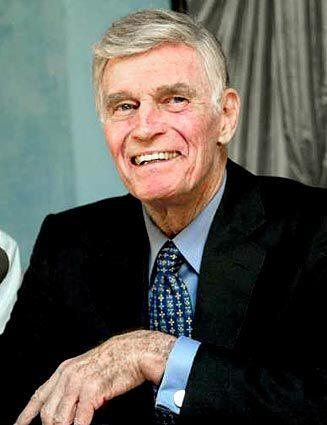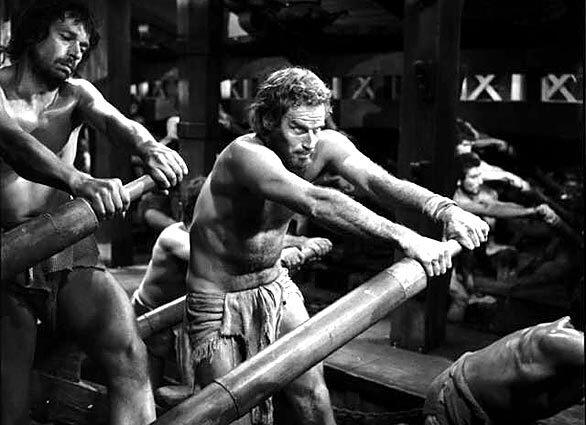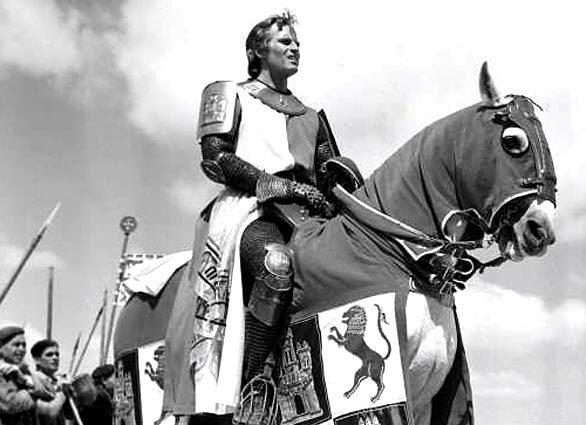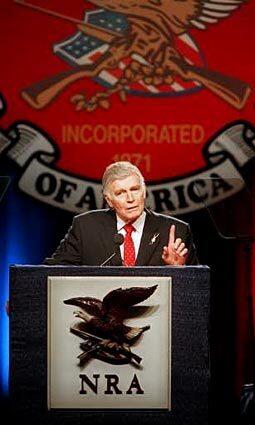Charlton Heston: Roles of a lifetime

By Susan King, Los Angeles Times Staff Writer
But he seemed most at home in epics such as “Ben-Hur,” for which he won his Oscar, and playing historical figures such as Moses in “The Ten Commandments,”
He also served seven times as president of the Screen Actors Guild, was chairman of the American Film Institute and the winner of the Academy of Motion Picture Arts and Sciences’ Jean Hersholt Award for his humanitarian activities. An outspoken conservative in his later years, he was a strong advocate for the National Rifle Association and served as the organization’s president from 1998 to 2003.
Heston showed incredible bravery when he announced in 2002 that he had been diagnosed with Alzheimer’s disease. “For an actor there is no greater loss than the loss of his audience,” he said. “I can part the Red Sea, but I can’t part with you . . . “
Here’s a look at Heston’s life in film, TV and theater:
Read Heston’s obituary here. (Volker Dornberger / EPA)

“Ben-Hur” (1959)
Wyler directed this expensive epic based on the novel by Gen.

“El Cid” (1961)
Though this lavish epic about the legendary Spanish hero, Rodrigo Diaz de Vivar, didn’t have the impact of “Ben-Hur,” it is still a terrific period drama. And Heston is particularly moving as the famed hero who leads the Spaniards against the Moors, and his romantic scenes with

‘Bowling for Columbine’ (2002)
Heston’s last major film appearance was in



